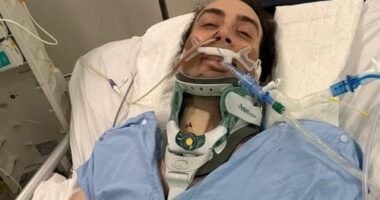Share this @internewscast.com
So, what do you need to know about this new variant?
The current COVID-19 situation
It’s more difficult to track the occurrence of the virus nowadays, as fewer people are testing and reporting infections. But available data suggests in late May 2025, case numbers in Australia were ticking upwards.
NB.1.8.1 has been spreading particularly in Asia — it was the dominant variant in Hong Kong and China at the end of April.
Where does this variant come from?
It’s a sublineage of the Omicron variant, descending from the recombinant XDV lineage. “Recombinant” is where a new variant arises from the genetic mixing of two or more existing variants.
What does the research say?
The mutations include T22N, F59S, G184S, A435S, V445H, and T478I. It’s early days for this variant, so we don’t have much data on what these changes mean yet. But a recent preprint (a study that has not yet been peer-reviewed) offers some clues about why NB.1.8.1 may be gathering traction.
This means it’s possible a person infected with NB.1.8.1 may be more likely to pass the virus on to someone else, compared to earlier variants.
What are the symptoms?
Common symptoms include sore throat, fatigue, fever, mild cough, muscle aches and nasal congestion. Gastrointestinal symptoms may also occur in some cases.











